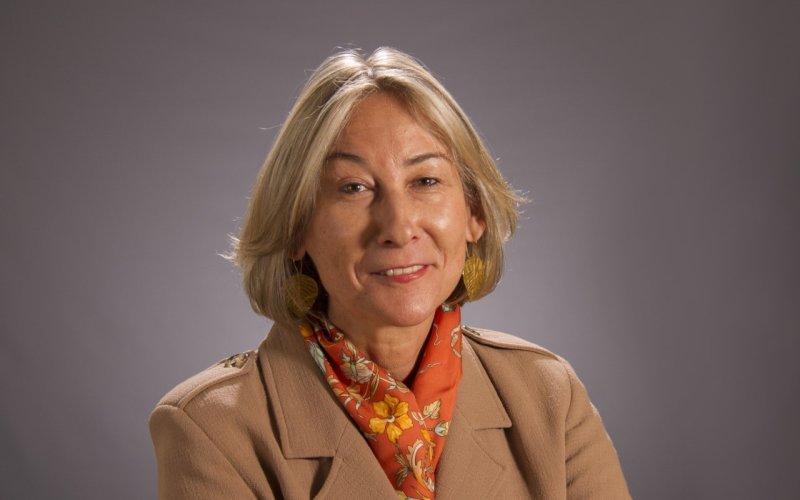UAlbany Professor Appears on Panel to Discuss Threats to Religious Freedom in Ukraine

By Bethany Bump
ALBANY, N.Y. (Feb. 9, 2023) — A University at Albany history professor and expert on Russia and Ukraine recently spoke on a panel about the growing threat to religious freedom in Ukraine under occupying Russian forces.
Nadia Kizenko, who also directs the University’s Religious Studies program, discussed recent decisions by the Ukrainian Constitutional Court aimed against the Ukrainian Orthodox Church on a panel titled, “Is Religious Freedom Under Threat in Ukraine?”
The Jan. 30 panel was co-sponsored by the Berkley Center for Religion, Peace and World Affairs at Georgetown University and the Religious Freedom Institute, and featured speakers from Georgetown, the Ukrainian Greek Catholic Church in Philadelphia, the University of Alberta and Pennsylvania State University.
Russia is clearly responsible for the worst damage to freedom, but Ukrainian reaction to that damage has “shifted into a new phase, and that new phase includes going after religious denominations targeted as being insufficiently patriotic,” Kizenko said. “This could damage Ukraine’s chances for (European Union) integration, so the hope was to call their attention to it and to think of the long game.”
The war of aggression by Russia against Ukraine has received vocal support from the Russian Orthodox Church, causing the Ukrainian Orthodox Church to announce last May that it was officially severing ties with the Moscow Patriarchate. While the Russian Orthodox Church continues to claim that UOC is a part of it, UOC leadership claims otherwise and has made attempts to draw lines demonstrating its independence.
But in December, after Ukrainian security services found some members of the UOC hierarchy and clergy had collaborated with occupying Russian forces, the Ukrainian Constitutional Court moved to restrict the church’s activity with a decision requiring it to change its name to reflect its ostensible membership in the Moscow Patriarchate.
“If I claim that someone is my girlfriend while she says, ‘No, we split up a long time ago, I’m living on my own, I’m independent,' who do we believe? The bullying ex or the person who has left?” Kizenko said.
In the panel discussion, Kizenko argues the court’s decision could pose a threat to religious freedom in Ukraine.
“A few bad apples do not give us the right to damn or ban the entire organization,” she said. “We have to evaluate the church’s official position and its official statements.”




